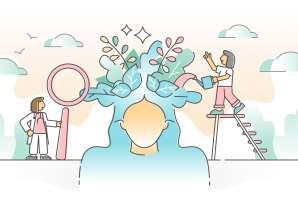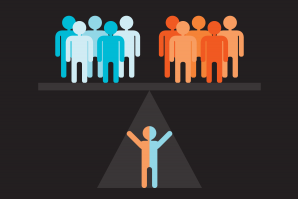In “Outgrowing Capitalism: Rethinking Money to Reshape Society and Pursue Purpose,” economic thought leader and future-of-work expert Marco Dondi invites us to reimagine our global economic framework, challenging the very foundations of how money is created and allocated in society. His bold narrative is not just an economic critique; it’s also a clarion call to reshape our society around a narrative of purpose over profit.
Dondi’s insights stem from an understanding that the current economic system leaves the majority of global citizens grappling for economic security, unable to focus on their life’s true purpose.
“Outgrowing Capitalism” is a testament to Dondi’s life journey — from his humble beginnings in Milan, through a life-altering meditation retreat, to his global career as a strategy consultant. His diverse experiences, from mushroom foraging to living across continents, have shaped a unique worldview that infuses his writing with depth and authenticity.
He asserts that the prevailing capitalistic status quo is the product of deep systemic flaws tied to capitalism. His critique is rooted in a realization that the assumptions fueling capitalism’s success have arguably become obsolete in our contemporary world.
It’s here where Dondi introduces “monetism,” which he describes in an early chapter of the book:
“This is a term I coined to describe a new economic system grounded in a new way of managing money. With this new economic system, we shift the emphasis from production (capital) to distribution (money). We align our economic system with current realities. This change goes to the heart of our world.”
Dondi doesn’t just propose an alternative to capitalism; he envisions a socio-economic revolution. He offers this innovative model as a way to redistribute wealth more equitably, using mechanisms like a universal basic income and a revamped taxation system to control inflation and spread prosperity.
Monetism, he asserts, is not intended to serve as a mere adjustment to the existing system but a radical reengineering of the global monetary framework, representing a fundamental shift from the greed-driven imperatives of capitalism.
Dondi’s approach, in my view, is refreshing and relatable. He deconstructs complex economic theories into understandable concepts, employing metaphors that demystify and engage. His perspective is deeply informed by his extensive experience in corporate consulting, granting him a practical edge over theoretical postulations.
The book offers readers an imaginative synthesis of diverse fields. Dondi adroitly intertwines cognitive psychology, sociology and philosophy, crafting a narrative that goes beyond economics.
From a macroeconomic perspective, he shares his vision of a world where markets still exist, one where these global systems are recalibrated to preclude greed and the perpetuation of inequality — the Achilles’ heel of capitalism.
Dondi’s message is ripe for resistance from the affluent minority, whose interests are entrenched in maintaining the status quo. He anticipates this, predicting that the core premises of monetism will likely be contested by those benefiting from the current system.
In a striking passage from the book, Dondi notes:
“Why do so many people have money issues? Why can’t we all live more comfortably, without having to worry about money? And what on earth could still induce stress in wealthy people? I envisioned a society where no one ever had the anxiety of living paycheck to paycheck, where people enjoyed control over their time, where they could fulfill their lives and become better human beings. How was this goal not possible, I thought, in our world of endless goods and services?”
Backed by extensive research, the book is daring and grounded in its proposals for addressing today’s prevailing income inequality narrative. Dondi’s vision is not just about tweaking the economic system; it’s about redefining value and success in human terms.
The metaphor of a Rube Goldberg machine aptly describes our current economy — complex, convoluted and often inefficient. Dondi’s monetism prescriptive aims to streamline this, using existing structures to forge a more equitable system. His is a pragmatic approach, yet the complexities of such a transformation are immense. Dondi acknowledges this, likening his method to the artful precision of bonsai trimming rather than reckless hacking.
While Dondi presents a critical view of capitalism, arguing for the need to transition towards a more sustainable and equitable economic system, this perspective is not without its counter arguments.
Some, for example, would assert that capitalism, despite its flaws, has been the most effective system in history for driving economic growth and innovation. There is also the argument that capitalist economies have consistently outperformed others in terms of technological advancement, increased productivity and overall wealth generation.
Follow this with the notion that the competitive nature of capitalism inherently fosters efficiency and consumer choice, spurring companies to innovate and improve. And the problems Dondi attributes to capitalism, such as inequality and environmental degradation, could be addressed through regulatory reforms and market-based solutions rather than a complete overhaul of the system.
Furthermore, skeptics of Dondi’s proposition would likely question the viability of monetism, the alternative economic system he is proposing, asserting that historical attempts to replace capitalism, such as various forms of socialism and communism, have often led to economic inefficiency, stagnation and in some cases, authoritarian governance. These critics would contend that while capitalism is not the perfect elixir, it is an effective prevailing system for distributing resources efficiently while encouraging personal freedom, free enterprise and entrepreneurship.
In the end, the book leads us to ponder deeper philosophical questions: What if we redefined currency itself? What if societal contribution, not professional status, determined one’s value? Dondi leaves us contemplating a society where altruism and community support are the benchmarks of success, envisioning a world where societal well-being is the ultimate return on investment.
Recommended For You

Business Book Review: ‘Going Remote: How the Flexible Work Economy Can Improve Our Lives and Our Cities’
As a residual effect of the COVID-19 pandemic, the world experienced an unprecedented shift in workforce practices. As office doors closed and the digital realm beckoned, millions of American workers embarked on an unexpected journey into remote work.

Book Review: ‘Artists Remaking Medicine’
Health care professionals and artists learn from each other in a new anthology
Just released in September of 2023, this anthology on the intersection of art and medicine offers a poignant look at the history, practice and future of radical creativity in the industry.

Book Review: ‘Housing for Humans’
An architect advocates for creative, simple solutions to the affordable housing crisis
Washington, D.C., based architect Ileana Schinder is a relentless advocate for residential and urban design solutions that can offer pathways for addressing today’s pernicious affordable housing crisis. She highlights these in her book “Housing for Humans: A Book to Imagine, Create and Design a New Housing Model in America.”

Book Review: ‘The Art of Badassery: Unleash Your Mojo With Wisdom of the Dojo’
A martial artist and health coach helps women apply dojo discipline to personal life and business
Whether the opponent is an overbearing boss, financial hardship or a testy love relationship, Jennifer Cassetta shows readers how to create a roadmap for ascending beyond one’s fears, turning challenges and setbacks into superpowers.

Book Review: The Nature of the Tribe
Tribal Leadership: Leveraging Natural Groups to Build a Thriving Organization
We live in a world of tribes. On a macro level, we discover that every organization is a tribe, a cadre of people involved in formal and informal levels of engagement. The existence of these tribes has major implications for today’s leaders in their quest to create world-class teams, businesses and companies that make a difference.

Book Review: Hard-Hitting Consulting How-To
‘Million Dollar Consulting: The Professional's Guide To Growing A Practice’ is not for the faint of heart
So-called expert consultants abound, but Alan Weiss’ Million Dollar Consulting: A Professional Guide To Building A Practice offers what many other how-tos don’t: modern, actionable tools for building a highly profitable enterprise.



